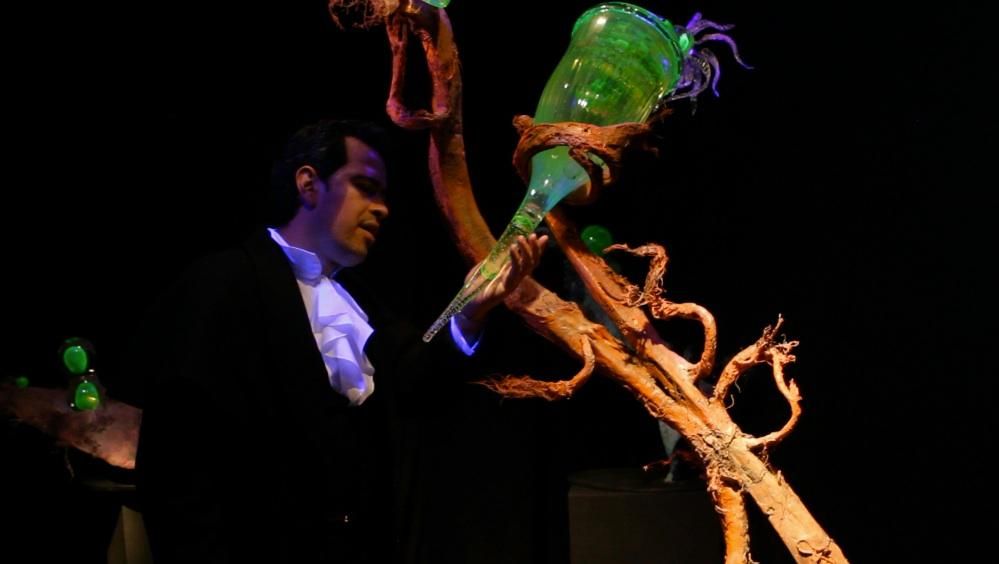An Artist’s Ode to Plankton, Set to Puccini’s ‘La Boheme’
Instead of singing to Mimi, the poet Rodolfo serenades a giant stalks of human-sized plankton wrapped in plastic pollution
/https://tf-cmsv2-smithsonianmag-media.s3.amazonaws.com/filer/20130327084035la-boheme-1.jpg)
Torn between spending the weekend at the Lincoln Center or at the Museum of Natural History? Artist Mara G. Haseltine is offering a compromise in her latest show, “La Boheme: A Portrait of our Oceans in Peril,” held at the agnes b. gallery space in New York City. The show combines opera with art to inform viewers about ocean pollution.
The show borrows from Puccini’s La Boheme, The Scientist reports, opening with the poet Rodolfo serenading giant stalks of human-sized plankton wrapped in plastic pollution to “Che gelida manina,” or “What a cold little hand.” In this case, instead of tuberculosis, it’s garbage that is robbing Rodolfo of his true love.
Here, you can see Haseltine’s introduction to her new work, with clips from the performance starting at about 2:30:
<iframe frameborder="0" height="281" src="http://player.vimeo.com/video/62730357" width="575"></iframe>
Haseltine further explained her inspiration behind the piece to The Scientist, which she first thought up while collecting water samples with the citizen science group Genspace:
Haseltine noticed that all her samples were contaminated with fine particles of sunlight-degraded plastic. “I have collected plankton from really remote places such as an oasis in the Sahara,” says Haseltine. When she found plastic even there, she was dismayed. “It was a horrifying realization.” That’s when she arrived at the concept of falling in love with something that you know is dying, “which is the ocean, but our planet too,” she says.
Scientists from the research vessel Tara Oceans, which Haseltine collected some plankton samples on, have found degraded plastic in the Antarctic Ocean, formerly believed to be pristine. Haseltine hopes her work brings attention to the problem. Her past exhibitions and projects have featured protein synthesis, oyster restoration and estrogen.

More from Smithsonian.com:
Air Pollution as Seen From the Skies
China Acknowledges It has a Problem with Pollution-Laden ‘Cancer Villages’
/https://tf-cmsv2-smithsonianmag-media.s3.amazonaws.com/accounts/headshot/Rachel-Nuwer-240.jpg)
/https://tf-cmsv2-smithsonianmag-media.s3.amazonaws.com/accounts/headshot/Rachel-Nuwer-240.jpg)